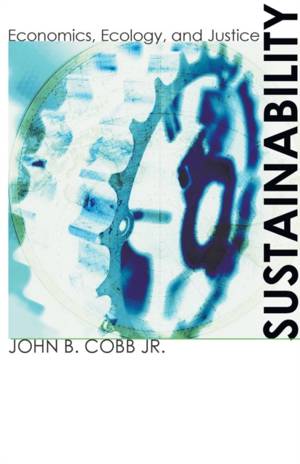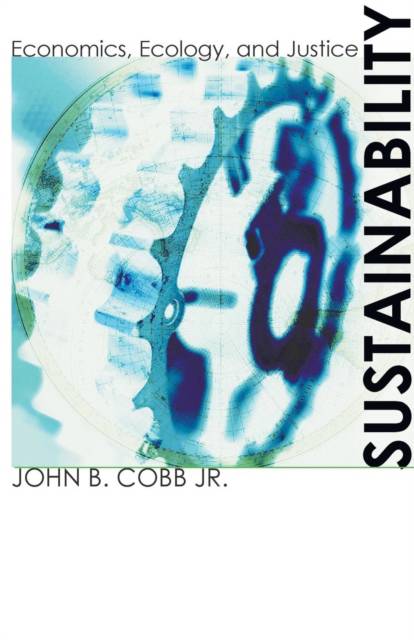
- Retrait gratuit dans votre magasin Club
- 7.000.000 titres dans notre catalogue
- Payer en toute sécurité
- Toujours un magasin près de chez vous
- Retrait gratuit dans votre magasin Club
- 7.000.0000 titres dans notre catalogue
- Payer en toute sécurité
- Toujours un magasin près de chez vous
Description
Can a livable society also be sustainable? How can we move beyond anthropocentrism without surrendering humanity's unique contribution to the globe? What of the contradictions conservative economics seems to reveal in so-called liberal approaches to economics and ecology? Does Christianity have anything to say about living in a world of limits? In 'Sustainability', John Cobb argues that reflections on ecological issues inevitably raise religious questions as well. Admittedly, traditional Christian teaching to subdue the earth had contributed to the mindset responsible for the crisis we are facing today. But Christianity can contribute to the discussion of how to keep the planet from ecological disaster. For one thing, Christianity can keep ecological issues closely tied to those of social justice -- a necessity for a sustainable society. Christianity can also make clear the need for individual change of heart (conversion) that is a prerequisite to real social and economic change. As the Earth Summit testified, our world stands in need of new visions, to nurture new ways of integrating its human, mineral, animal, vegetable, and energy components. 'Sustainability' is John Cobb at his best . . . timely, incisive, and vigorous. Good news! John Cobb's book shows that, yes, our society can be both sustainable and livable -- news for Christians to read and heed. -- Carol J. Adams author of 'The Sexual Politics of Meat' and editor of 'Ecofeminism and the Sacred' John Cobb has become a major spokesperson in the American Protestant community for the integration of ecology, economics, and Christian theology. For him, the shaping of this critical discourse is a matter of the greatest human urgency, if we are to find the vision and will to save a dying planet. In 'Sustainability' we have Cobb's careful and lucid translation of this complex discussion into language readily accessible to the lay person. -- Rosemary Radford Reuther Professor Emerita, Pacific School of Religion John B. Cobb Jr., formerly professor of theology at Claremont School of Theology, is a major interpreter of process thought. His books include 'Christ in a Pluralistic Age', 'God and the World', and 'A Christian Natural Theology'.
Spécifications
Parties prenantes
- Auteur(s) :
- Editeur:
Contenu
- Nombre de pages :
- 136
- Langue:
- Anglais
- Collection :
Caractéristiques
- EAN:
- 9781556352133
- Date de parution :
- 23-01-07
- Format:
- Livre broché
- Format numérique:
- Trade paperback (VS)
- Dimensions :
- 141 mm x 215 mm
- Poids :
- 176 g

Les avis
Nous publions uniquement les avis qui respectent les conditions requises. Consultez nos conditions pour les avis.






